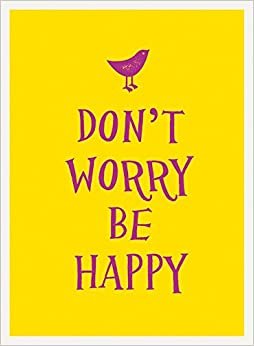
Some things are in our control and others not. Things in our control are opinion, pursuit, desire, aversion, and, in a word, whatever are our own actions. ... The things in our control are by nature free, unrestrained, unhindered; but those not in our control are weak, slavish, restrained, belonging to others.
How could a book written millennia ago apply to life today?
While I will never reach the elegance and simplicity in writing of Epictetus, many people are put off from the Stoic philosophy for a number of different reasons and I feel compelled to address a few. Simple laziness is chief among those reasons, but genuine concerns do exist as to how much wisdom a "self-help book" that is nearly two millenia old can really contain.
I'm here to say that the answer to those concerns is "a whole damn lot", as the Stoic philosophy as specifically presented by Epictetus in the Enchiridion is full of simple banalities that we are all aware of but ignore and suffer from as a result.
Some of the most basic concepts in the Enchiridion, when dutifully applied in daily life, provide a true means to letting go of stress and attaining a greater level of happiness than we as a culture understand is available to us.
Stoicism can make you happier.
As I've stated, many of these teachings seem to be banal, obvious, and so lacking in originality that they're not worth pondering, as western culture has been so shaped by the Stoic philosophy that we see these themes in all forms of art and media. The problem with this is that these ideas and teachings are ignored wholly as "cliche".
This post aims to explain some of the more important concepts that apply most to our modern struggles. My life and my general level of happiness have been profoundly affected by Stoicism, and I can only hope that this writing will influence you in a similar fashion.
Remember that following desire promises the attainment of that
of which you are desirous; and aversion promises the avoiding that
to which you are averse. However, he who fails to obtain the object
of his desire is disappointed, and he who incurs the object of his
aversion wretched.
How obvious! Wanting something that you never get makes you unhappy, and avoiding something that will happen makes you unhappy! Who'da thunk? But this basic concept brings about many questions that are no matter of science. Are we in control of our desires? Can we make ourselves stop wanting the newest iPhone, a brand new car, or a more powerful position at work? Are we slaves to our baser instincts?
Do we control our desires?

Epictetus, as well as myself, would argue that we are in control of our desires and that we can consciously work to improve how often we find ourselves disappointed. Likewise, through practice and thought, we are able to find ourselves being less damaged by undesirable events in our life. Poverty, sickness, and even death are all things we fear but have little to no control over. By accepting that these things are, "prescribed not to you, but your paltry body", you can find yourself less upset when you don't get the promotion you wanted at work or when you don't get that Ford Mustang GT (damn it) you were wanting.
But we're not robots; how can you expect us to ignore our feelings?
Who among us can say that they will be completely unphased when they break their leg right before the big game or when their car gets destroyed by an uninsured driver? I certainly can't claim to be so well disciplined that these things would not upset me; understanding, however, that my leg or car simply belongs to me and does not constitute what I am can calm the anger and bring peace. There is no easy answer to situations such as these, but allowing ourselves to become unhappy and disillusioned does not improve anything. Human emotion is not some kind of physical urge that requires expulsion - the modern metaphor that you can "bottle up emotion" is simply unfounded. We do not require that we release anger or sadness, and benefit from controlling these emotions through understanding of their root causes rather than ignoring them or releasing them in unhealthy actions.
Men are disturbed, not by things, but by the principles and notions which they form concerning things. Death, for instance, is not terrible, else it would have appeared so to Socrates. But the terror consists in our notion of death that it is terrible. ... If a person gave your body to any stranger he met on his way, you would certainly be angry. And do you feel no shame in handing over your own mind to be confused and mystified by anyone who happens to verbally attack you?
Of all the assertions Epictetus makes in the Enchiridion, this one holds the most practical value. It is, of course, entirely true that our emotions can not be directly affected by any external event or object. Humans are naturally and socially inclined to react in certain ways to certain stimuli, but we are not inclusively bound to these reactions. If a man insults you it is not the insult that harms you, but it is rather the opinion you hold about the insult that harms. If I were to call you an idiot for liking Hillary Clinton or Donald Trump or disliking either one, it is not my words that have now aroused your emotion, but it is rather the fact that you don't like being called an idiot. For what reason, then, do you allow me to control your emotions? It is not a natural reaction to those sounds to become angry, but rather a socially taught response. Why whore your mind to me for a price so small as a single word?
There is no benefit to wallowing in despair or sadness, or becoming enraged and allowing fury to control your life. The only way to ensure you don't allow others to control you is to understand that only you do control your emotions and that externals can only provide input for your mind. It is entirely in the domain of your control as to how you act and mentally respond to those external inputs.
Always do what you know is the right thing.

When you do anything from a clear judgment that it ought to be done, never shun the being seen to do it, even though the world should make a wrong supposition about it; for, if you don't act right, shun the action itself; but, if you do, why are you afraid of those who censure you wrongly?
Finally, the most simple of all wisdom. When you wish to do something that you know is correct, and you have taken this action while level-headed and have considered it thoroughly, you should not consider the response of others to be of importance. Just as Socrates gave his life in the pursuit of educating the young of Athens and as countless individuals have provided their time, effort, and likewise their lives in hopes of "doing the right thing", so too should you do what you believe in without want or care of approval. Those who would attack you for taking actions that you know to be right are bereft of understanding. It is not your job, nor mine, to educate: but only to take those actions which are in accordance with what is right. I cannot tell you what is right nor would I think my thoughts on the nature of "right and wrong" to be universally true.
Act always as you find aligns yourself with goodness, regardless of the opinions of other men, and you will surely be a happier person for it.
Epictetus was a pretty smart guy. As a slave for many years, he found that coping with the harshness of life was not easy to do when he allowed himself to be affected by things in his life outside of his control. His work, as well as that of the other Stoics, has influenced and will continue to influence the happiest among us. I'd argue that is no coincidence.
Thank you for reading. You can find the whole text of the Enchiridion at my website! It's relatively short, and definitely worth your time.
Thank you for sharing! This is very interesting and helpful :) I have no philosophy background at all, but I think emotions play an important role in achieving happiness in life. And before ones can obtain their happiness, they have to undergo kind of emotional training in order to control their feelings and to form a strong belief about themselves in life :)
This is an important thing to remember especially in a place like the internet where there is nearly always a spectrum of people listening and commenting. It is very easy to only focus on the negative feedback and ignore the useful responses that are often in between.
People need to remember that security is an illusion itself and the mind is the place where the concept resides and can be destroyed. This requires an examined approach to life, not an emotional reaction.
I absolutely agree, @tarazkp. Sometimes, however, it's just as dutiful to ensure you're not purposely placing yourself in places or situations where the negative can be overwhelming even to a well-disciplined stoic.
Thanks so much for the feedback!
This is true but I think the barrier has to be continually attacked until there is no barrier left, otherwise one always has a weakness that can be manipulated. I am not saying that it is possible to remove all barriers but, if they are shifted so far out to where no one else dares tread, they cannot be used to force a reaction.
Thank you for sharing
click here.Congratulations @sezycei, this post is the fifth most rewarded post (based on pending payouts) in the last 12 hours written by a Newbie account holder (accounts that hold between 0.01 and 0.1 Mega Vests). The total number of posts by newbie account holders during this period was 1246 and the total pending payments to posts in this category was $1037.22. To see the full list of highest paid posts across all accounts categories,
If you do not wish to receive these messages in future, please reply stop to this comment.
Be vulcan... ahem ... stoic...
Your post was mentioned in the hit parade in the following category:Congratulations @sezycei!
Good one Sezycei. It's always worth mentioning this ancient philosophy. Stoicism is probably the best antidote amongst the never-ending outrage and trolling that is constantly bombarding social media these days.
Epictetus also included a line in the Enchiridion that captures all of the meaningless indignation very concisely: "Not things, but opinions about things, trouble men." Is anyone else sick of the alt-right crew throwing childish tantrums?
And once Epictetus has been considered, it's time for Marcus Aurelius.